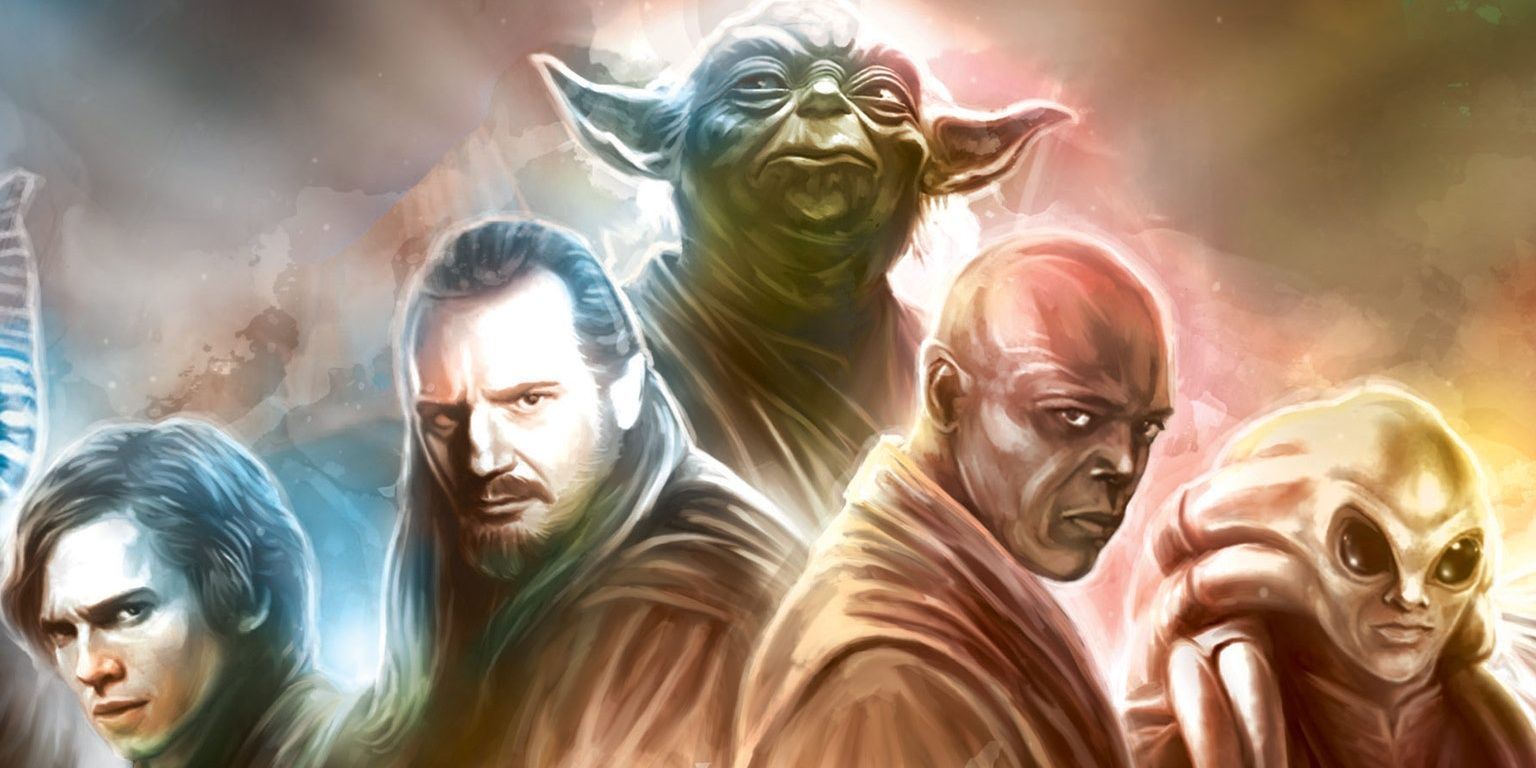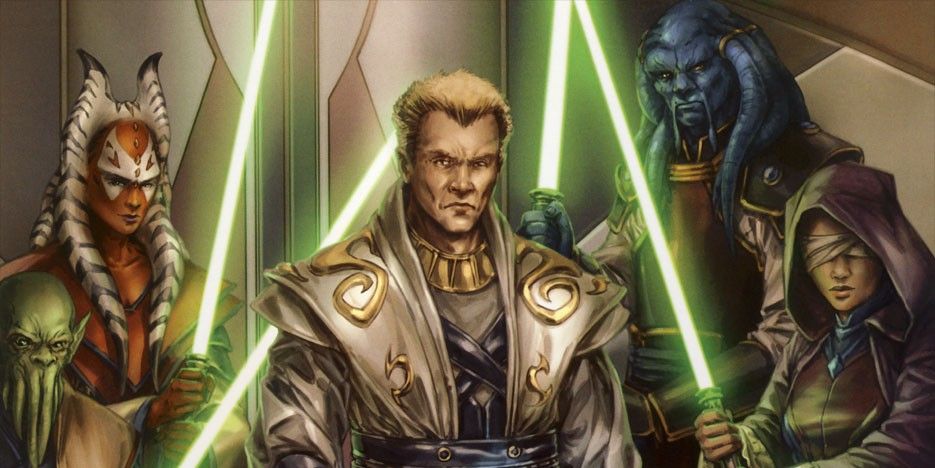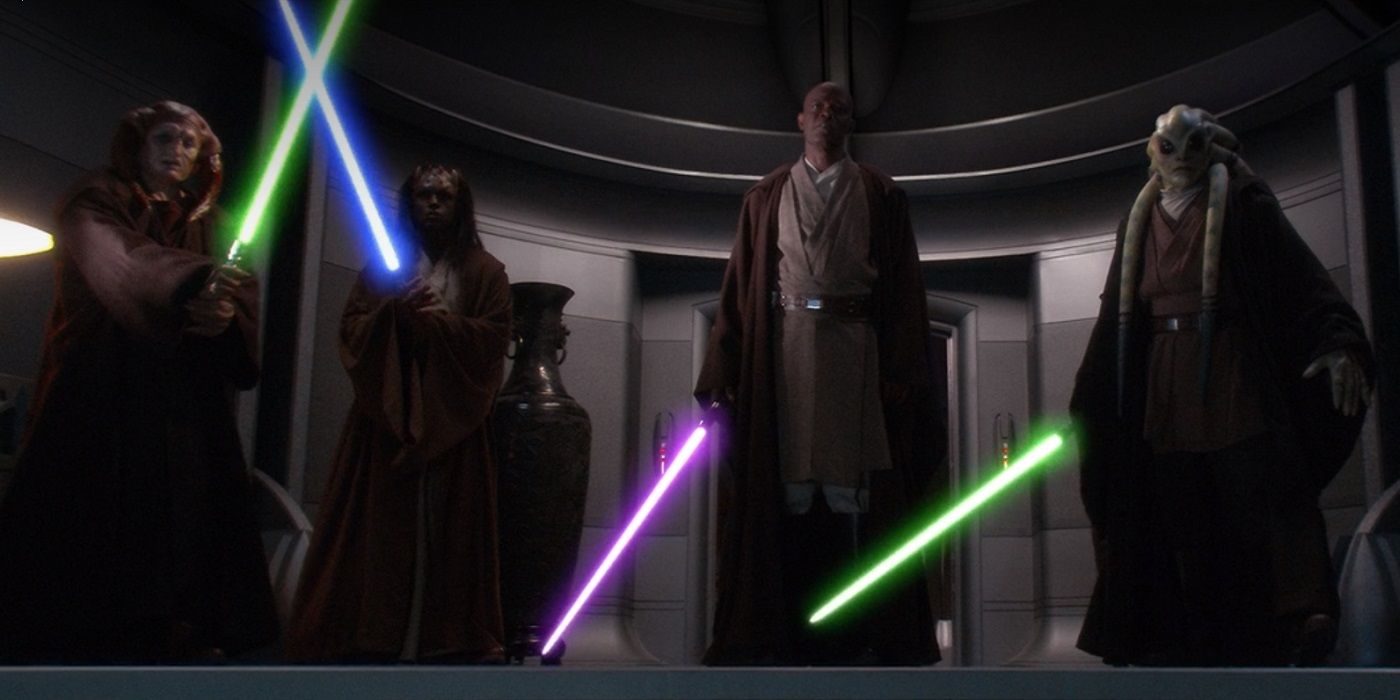
Star Wars sets up its heroes and villains quite plainly: the Jedi are the guardians of light and good in the galaxy, while the Sith embody evil and darkness. Even down to the aesthetic choices of light robes and mostly blue or green lightsabers against black outfits and red sabers, the Jedi are meant to be unequivocally the good guys.
But when Anakin famously said, "I see through the lies of the Jedi" in Star Wars: Episode III - Revenge of the Sith, he wasn't completely wrong. From an objective point of view, the Jedi didn't always operate in ways fully above board. In Anakin's lifetime alone, they raised some questionable flags, ranging from rampant hypocrisy to downright warfare.

The Jedi Order stood for thousands of years before the Empire rose from the ashes of the Republic. At its height, thousands of Jedi roamed the galaxy, protecting the peace and acting as neutral servants of the Republic. They were respected and revered across planets and operated from a strict morally-driven Jedi Code. As Obi-Wan Kenobi famously tells Luke Skywalker in Star Wars: Episode IV - A New Hope, "For over a thousand generations, the Jedi Knights were the guardians of peace and justice in the old Republic. Before the dark times, before the Empire."
But that poetic and nostalgic take on the Order glosses over the fact that the Jedi way could be, at times, a bit shady. Though couched in terms of being "for the greater good," it is still a cold hard fact that the Jedi took babies away from their parents and indoctrinated them at birth into a lifestyle that could be seen as uncomfortable and stifling at best, particularly when the child had no choice. In The Clone Wars Season 2, Episode 3, "Children of the Force," the Jedi mobilized against Cad Bane stealing Force-sensitive babies to become Sith indoctrinates to spy on the Jedi. Although Darth Sidious wanted to take things further, intending to experiment on the children and not caring if they survived, the Jedi didn't know the extent of his plan. In their eyes, they simply saw babies being taken from their mothers on behalf of the Sith, which is the same way the Jedi themselves recruited new younglings.

That same severing of and disregard for family ties rings a bit hollow. For all the Jedi evangelized about protecting others and even about loyalty within their own ranks and the bond between Master and Padawan, they had little empathy for Anakin Skywalker being taken from his mother at nine years old. Though the Jedi themselves were forbidden from true attachments, they still preached having compassion and practicing empathy, which was often lacking.
They also possessed a curious lack of empathy and regard for autonomy in Legends stories surrounding the Jedi Service Corps. In books such as the Jedi Apprentice series, it was explained that if a Jedi initiate was not chosen as a Padawan by the time they turned 13, the Jedi Order siphoned off those children into predetermined factions of the Service Corps (either the AgriCorps, the MediCorps, the EduCorps or the ExplorCorps) to work and live out the rest of their days.
While the Jedi once stood for peace and neutrality, they quite seamlessly shifted into their new roles as soldiers and generals in the Clone Wars. They ceased to be passive peacekeepers and ushered in a new era as warriors, yet still described and viewed themselves as neutral guardians. There was a disconnect between their old ideals and their current reality, which put them at odds with their golden persona. This disparity was not lost on the people of the galaxy, who grew to view the Jedi as either a nuisance at best or even cruel, as the Martez sisters did, nor was it lost on Jedi such as Anakin and Barriss Offee.

Even when it came to their own ranks, the Jedi displayed qualities beneath their supposed heroic status. They became so wrapped up in the idea of the Chosen One bringing balance to the Force, they failed to consider that the prophecy could read just as true for the Dark Side as for the Light. Their clouded judgment and hubris prevented them from considering all angles and allowed the darkness of the Sith to grow right under their own noses, and it was their unwillingness to consider all perspectives that helped Palpatine and the Empire flourish. It was only moments before Anakin's fall that Yoda even considered the prophecy may have been misread.
In fact, of all the Jedi at the time, Yoda was perhaps the most aware of their failings. In Star Wars: Episode II - Attack of the Clones he recognized that "the Dark Side clouds everything. Impossible to see the future is." But even this realization was too little, too late for an Order that had been slowly losing its once untouchable moral high ground. When looked at from an outside perspective, the Jedi come off sounding like a disreputable organization and, when combined with how they showed double standards in following the code throughout the years, Anakin's unforgiving view of the Order makes a little more sense.
0 Comments